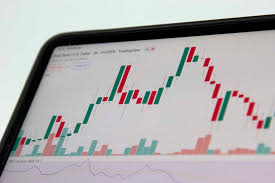When trading contracts for difference (CFDs), the broker you choose can significantly influence your overall experience and success. With an increasing number of cfd broker available, it might feel overwhelming to decide on the right one. This article explores the important factors you should keep in mind when selecting a CFD broker, ensuring you make an informed decision.
Regulatory Compliance
The first thing to check when considering a CFD broker is whether they are regulated by reputable financial authorities. Regulations ensure that the broker adheres to strict standards, including secure handling of client funds and transparent business practices. Look for licenses from authorities like the Financial Conduct Authority (FCA) in the UK, the Australia Securities and Investments Commission (ASIC), or the Cyprus Securities and Exchange Commission (CySEC). This minimizes the risks of fraud and protects your investments.
Trading Fees and Costs
CFD trading often involves fees, ranging from spreads to overnight financing rates. Spreads, which signify the difference between the buy and sell price, can vary considerably across brokers. Tight spreads are generally favorable for traders. Additionally, watch out for commissions on trades or other hidden costs that could erode your profits over time. Always read the fee structure in detail before signing up.
Available Markets
Different brokers provide access to varying sets of markets, including forex, stocks, indices, commodities, and cryptocurrencies. A well-rounded CFD broker will give you a large selection of instruments, allowing you to diversify your portfolio. Ensure the offered markets align with your particular trading interests and strategies.
Trading Platform and Tools
A reliable and user-friendly trading platform is essential for CFD trading. The interface should be intuitive and provide necessary tools such as market analysis, real-time charting, and risk management features. Popular platforms like MetaTrader 4 and MetaTrader 5 are widely offered by top brokers, but some brokers offer proprietary platforms as well. Test out the platform on a demo account if possible.
Leverage and Margin Requirements
CFDs are inherently leveraged products, meaning you can trade large positions with a smaller upfront investment. While leverage increases profit potential, it also magnifies losses. Make sure the broker offers leverage limits appropriate to your risk tolerance and experience level. Additionally, be aware of the margin requirements and how they align with your trading plan.
Customer Support
Responsive customer support is often overlooked but plays a critical role, especially during technical difficulties or urgent trading issues. Look for brokers with 24/7 support and multiple channels of communication, such as live chat, phone, or email. A dedicated support team can provide the peace of mind you need to trade effectively.
By carefully evaluating these criteria, you’ll be well-equipped to select a CFD broker that suits your needs. Remember, the right broker can make a considerable difference in your CFD trading success, so take your time to research and choose wisely.
